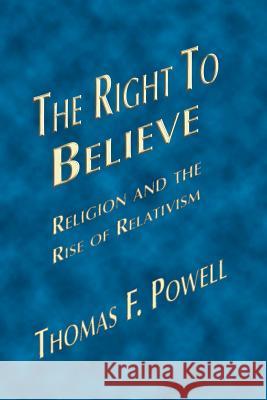The Right to Believe: Religion and the Rise of Relativism » książka
The Right to Believe: Religion and the Rise of Relativism
ISBN-13: 9781412079662 / Angielski / Miękka / 2006 / 272 str.
This book is about how the United States has arrived where it is, intellectually and morally, over the past century or so. Pragmatism has provided the culture its characteristic conceptions of truth, particularly welcomed to a Fundamentalist religious perspective otherwise besieged by modern philosophy and science. The anti-intellectual current now so conspicuous has always been a powerful force in American life, and it has survived and flourished in the face of all challenges: Darwinian evolution, Marxist and other economic determinism, the discoveries of psychology, social science, and neuroscience; and breathtaking realizations in the physical and natural sciences. New perspectives on the situation of humans in the universe have unsettled traditional faiths, but hard times seem only to have hardened them into fanaticism.
Now the right to believe as we wish is taken to mean a right to reject what we dislike or disapprove, even if it is demonstrated; and to insist upon the truth of what we wish to be true, even if shown to be preposterous. From about 1900, we see a peculiar pattern, increasingly strong as it approaches the present, of claiming truth for what we wish; what pleases us, suits our interests, or, as T. S. Elliot put it, permits us to "think well of ourselves." From "I think, therefore I am," we elided into "I feel, therefore I am right." And truth relative to individual feelings can be paradoxically claimed as absolute and asserted dogmatically. Relativism enables me to be a dogmatic absolutist, be certifying the truth of what I feel.
What are the consequences of this remarkable development for ethics, values, public affairs, and decision-making in general? Thisessay inevitably becomes a mediation on how the "right to believe" is exercised, and what its implications are bringing about.











